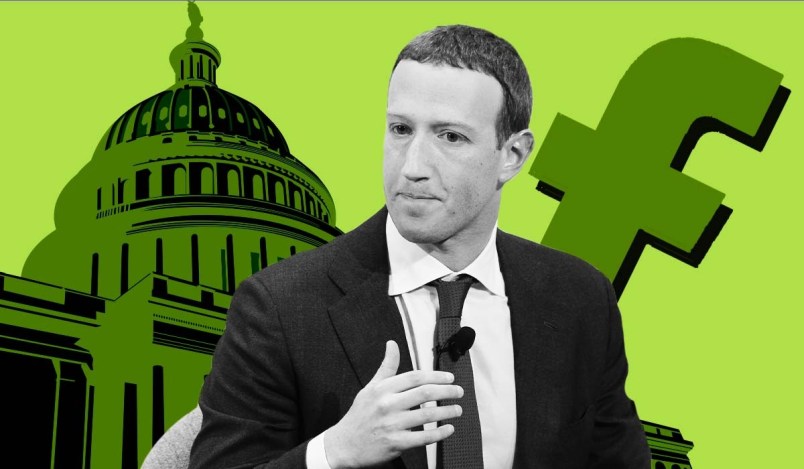I haven’t been reading all of the articles now coming out of the so-called “Facebook Papers”. But this article from the Post captures some important issues, ones that aren’t tied necessarily to the specific revelations getting the most attention but a general picture. There are two big focuses to the piece. The first is that for a company of its scale Facebook still has an extremely top-down management structure. Basically Zuckerberg is deep in the details and makes all the big decisions. The second is that he has repeatedly shot down internal ‘harm reduction’ proposals because they threaten core engagement metrics.
I noted a few weeks back that these tradeoffs get to the heart of Facebook’s problem and the heart of what the site is. The harm is inherent to Facebook’s business model. When you find ways to reduce harm they’re almost always at the expense of engagement metrics the maximization of which are the goal of basically everything Facebook does. The comparison may be a loaded or contentious one. But it is a bit like the Tobacco companies. The product is the problem, not how it’s used or abused. It’s the product. That’s a challenging place for a company to be.
But this article captures something a bit different. Facebook now makes up a very big part of the whole global information ecosystem. In many countries around the world Facebook for all intents and purposes is the Internet. The weather patterns of information as we might call them are heavily shaped by Facebook’s algorithms and the various tweaks and adjustments it makes to them in different countries. Facebook may not create the misinformation or hate speech or hyper-nationalist frenzies but its algorithms help drive them.
What this article shows is first that the guiding light for those algorithms is first to maximize engagement. That part we know. That’s the business model. But in a different way they are driven by goals and drives of this one guy, Mark Zuckerberg. Often I think of these high profile CEOS or founders as symbols of a corporate culture but not necessarily really the guys running the show. This article and much else makes pretty clear that it really is still Mark Zuckerberg that runs the show. And what drives him? This article and much else suggests that what shapes Zuckerberg’s goals are perhaps three things in descending order: 1) to win (in all its dimensions), 2) to maximize profits and 3) to cater to the complaints of the right which is most effective and aggressive about complaining about purported mistreatment.
One interesting anecdote in the article comes out of Vietnam, where Facebook is estimated to make about $1 billion a year. A few years ago Vietnam demanded that Facebook start censoring anti-government posts or really any criticism of the government or be taken off line in the country. Essentially Vietnam insisted that Facebook delegate content moderation within Vietnam to the government of Vietnam. Zuckerberg personally made the decision to agree to the demands.
He apparently justified this on the reasoning that Facebook disappearing in Vietnam would take away the speech rights of more people than the censorship would. If that sounds like self-justifying nonsense thank you for reading closely. The Post piece focuses on the money part of the equation. But my read is that it was more the ‘winning’ part than the money, though of course the two become somewhat indistinguishable. So Zuckerberg is a near free speech absolutist, as the story conveys. Except when it might mean going dark in a medium-to-large-sized country.
Part of my response to all of this is admittedly banal: this is just too much power for one person to have. But it’s more that the win, win, win!!! mentality which certainly lots of CEOS and especially Founder-CEOS have in spades is here harnessed to an engine that does a lot of damage. Tech journalist Kara Swisher, who has interviewed Zuckerberg numerous times over many years, notes that it would be easier to make sense of this if Zuckerberg were an evil guy or an “asshole” as you she puts it. But he’s not, in her estimation. He is or at least was earnest and in his own way even well-meaning. She chalks some of it up to a privileged and infinitely fortunate life in consequences or bad things happening was just never really a thing. And so the bad consequences Facebook can do are never as obvious or important as the cool things it does. And if some things get broken, well … there must be a technical fix.
Back in 2018 I wrote about a distinct but related issue. No big tech company has been worse at launching off on new ventures or ideas, having whole cottage industries grow up around those ventures, and then shifting gears and having countless partner businesses go belly up. Capitalism ain’t bean bag. So this isn’t the same as polarizing society or fomenting extremism or driving mental health problems for big chunks of the population. But there is a related indifference or oblivious to the impact or social costs of what Facebook does, if in many case only because of its sheer scale. This isn’t just corporate culture, or perhaps Zuckerberg himself. A lot of it is tied to Facebook’s relationship to the rest of the web. Google is structurally much more connected to and reliant on the open web. Facebook is much more a closed system which remains highly profitable regardless of the chaos it may create around it.
The irony is that as a data company, Facebook is actually especially, if not uniquely, able to quantify a lot of that damage. Probably lots of companies do all sorts of harm. But they’re not in the metrics business. So there’s no data staring them in the face. Here they do. And basically it doesn’t matter. Or it doesn’t matter if it comes at the expense of the engagement metrics which drive the winning and the money.






